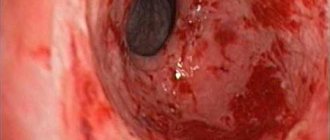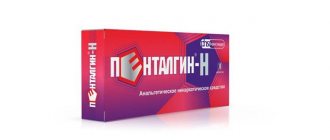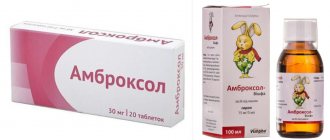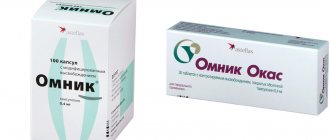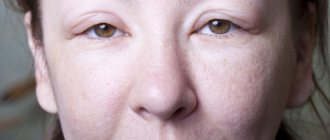The problem of preventing influenza in adults and children
Influenza incidence rates, despite the availability of a vaccine, remain at a high level every year. The situation is aggravated by the variability of viruses and the emergence of new strains.
Respiratory infection in 80-90% of cases causes exacerbation of chronic diseases, which leads to severe consequences and death.
In children, the most common complication is pneumonia and attacks of bronchial asthma. The only way to resist viral epidemics and pandemics is to strengthen your own immunity with the help of evidence-based medicine.
Use in childhood
The drug is prescribed to children for the treatment of diseases of the nervous system, ulcers and colic, as well as as a preventive measure during the flu season. The question of the need to use the drug is decided only by the doctor, having assessed the course of the disease, the individual characteristics of the individual child’s body, and also making sure that there are no contraindications.
For outpatient or inpatient treatment, tablets with a pediatric dosage or intravenous/intramuscular injections are used. The form of the drug is also prescribed only by a specialist. During the course of treatment, the doctor monitors the child’s condition, although side effects of the medication are rare. The instructions allow children to take the drug "Dibazol" and determine the following dosage in accordance with age:
- over 12 years old - 5 mg/day;
- from nine to twelve - no more than 4 mg/day;
- from four to eight - no more than 3 mg/day;
- from one to three years - no more than 2 mg/day;
- up to one year - no more than 1 mg/day.
The dosages in the instructions are advisory in nature, therefore under no circumstances should they be used for self-medication. If further use of the drug is necessary, subsequent courses of therapy are prescribed after 1–2 months.
Brief characteristics of Dibazol
Dibazol is an antispasmodic drug. Relaxes and reduces the tone of smooth muscles (hollow organs - stomach, intestines, blood vessels). The main areas of application of the myotropic antispasmodic are cardiology and gastroenterology.
The medicine is prescribed to patients with high blood pressure, hypertensive crisis. The active substance exhibits a short-lived effect, so it is prescribed as an additional therapy. For a short time, the drug dilates the blood vessels of the brain. Dibazol is also prescribed for spastic attacks of the stomach and intestines. The drug is used in neurological practice for the following conditions:
- poliomyelitis (to relieve residual effects);
- polyneuritis;
- facial paralysis;
- flaccid paralysis syndrome.
Dibazole worsens ECG readings and reduces cardiac output (the amount of blood ejected by the heart per minute). Therefore, for patients with diseases of the cardiovascular system, the drug is prescribed for short-term treatment.
The drug "Dibazol" during pregnancy
In obstetric practice, the described medication has also found wide use. It is prescribed as a means to lower blood pressure, as it is considered quite safe. Studies have confirmed the absence of a threatening effect of the components of this drug on the fetus or on a breastfed baby. During pregnancy, the drug is prescribed in cases of increased blood pressure, regardless of what exactly caused it. If the drug is administered by injection, then after 15-20 minutes. it begins a mild hypotensive effect on the pregnant woman, which is especially important for a woman in this condition. The fact is that a sharper decrease in pressure can provoke a violation of the fetoplacental blood circulation, and this, in turn, will cause fetal hypoxia (that is, its oxygen starvation).
The action of the drug as an immunostimulant
During pharmacological studies of Dibazol, its immunostimulating activity was discovered. The drug helps the development of nonspecific resistance - the body’s ability to independently regulate the cellular and humoral immune response.
Pharmacological properties of the drug:
- antiviral
- stimulates immunity to attack by infectious agents at the initial stage of influenza infection; - antiproliferative
- suppresses the replication of viruses inside the host cell; - immunomodulatory
- corrects violations of the body's protective functions.
The action of the drug is aimed at producing a specific interferon protein by cells during the invasion of a viral agent. The substance makes the human body immune to infection.
After the virus is introduced into the cell, its matrix is reprogrammed, and the nucleus begins to actively replicate (multiply) the virus. At this time, an intensive increase in the amount of interferon is triggered. Human protein is released from the cell into the cellular space, enters into a chemical bond with uninfected cells, changing their biochemical formula. Cells become invulnerable to the virus. So Dibazol stops the spread of infection and reduces the degree of general intoxication of the body.
Mechanisms of action of Dibazol
What cellular reactions occur in the body after taking the drug:
- in healthy cells, under the influence of the drug, a sequential system of suppressing the replication of viruses and their entry into the cell cytoplasm is launched;
- uninfected cells produce an enzyme that interacts with the infectious agent, damaging its RNA, which provokes the death of the microbe;
- the product activates genes that create a powerful shield when faced with influenza viruses;
- 2-3 days after starting to take the drug, the TP35 gene is activated, which reprograms the infected cell to apoptosis (self-destruction).
Dibazol is a powerful immune stimulant. Coordinates the work of different types of leukocytes and lymphocytes, enhances the production of neutrophils (killer cells).
The drug "Dibazol" for the prevention of influenza
Separately, I would like to dwell on the adaptogenic properties of the named medication. Researchers have proven that it helps increase our body's resistance to various external influences. Small doses of this medicine stimulate the production of interferons and an increase in the amount of endorphins and interleukins in the blood (these natural killers are components of our body’s immune defense). But Dibazol tablets should be taken for a long time to prevent viral infections (at least 30 days). This requires a dose of 0.01 g per day. By the way, in addition to stimulating the immune system, the drug also enhances the stability of the nervous system, which controls the constancy of all physiological processes taking place in our body. For the treatment of ARVI, the medication is prescribed in individual dosages intravenously. As a rule, it is combined with calcium gluconate or ascorbic acid.
Release forms
Dibazol is intended for oral or parenteral administration. The drug is available in the form of flat, cylindrical, white tablets with a score and bevel. 1 tablet contains 20 mg of the active substance (bendazole). Available in strips of 10 pcs.
Another dosage form is a solution for injection (intramuscular, intravenous). The solution is transparent, colorless, without sediment, cloudiness, or flakes. One ampoule contains 5 ml (10 mg of bendazole).
How the drug interacts with other drugs
- If the use of Dibazol is combined with drugs containing phentolamine, its hypotensive effect will increase.
- The simultaneous use of diuretic (diuretic) and antihypertensive (pressure-lowering) medications enhances the effect of the latter.
- The drug in combination with a beta-adrenergic receptor blocker (they are responsible for the body's response to stress) prevents the increased resistance in the vascular bed caused by this drug. Such drugs include the drug “Anaprilin”.
Who is the drug indicated for influenza?
People who are at risk for respiratory infection need additional stimulation of the immune system. The main indication for use is the prevention of influenza and its complications in the autumn-winter period.
Which categories are recommended to take Dibazol to increase their defenses:
- elderly people over 65 years of age;
- weakened patients with chronic internal pathology (asthma, airway obstruction, diabetes mellitus, malignant neoplasms, neurological conditions, functional kidney disorders);
- people with immunodeficiency conditions;
- schoolchildren after 12 years of age with an intensive form of education;
- with frequent ARVI (more than 6 times a year);
- residents of large cities, megalopolises;
- people susceptible to stress and depression.
Dibazol can be used by an adult after vaccination, when the immune system is artificially weakened and requires support.
Indications for use
The drug is used for the treatment of hypertension.
The medicinal drug "Dibazol" can be taken if there is an indication for use and after the recommendation of a doctor. Otherwise, the use of pills leads to unforeseen consequences that negatively affect the entire body. Instructions for use provide a list of diagnoses for using the product:
- increased blood pressure of periodic or constant types;
- hypertensive crisis;
- spasms of muscles of internal organs;
- residual symptoms of polio and other diseases.
Regimen for taking Dibazol to strengthen the immune system
To prevent influenza and respiratory infections, a small dosage of the drug is required. It is enough to take 20 mg per day to support the immune system. Prevention begins a month before the start of the expected influenza epidemic.
Table: how to take Dibazol for immunity (tablets).
| Age | Preventive course | Period of epidemiological rise of influenza | In direct contact with the patient |
| Children from 12 to 18 years old | By ? tab. once a day | 1 tab. once a day (12 days) | By ? tab. 3 times a day (4 days) |
| Adults and elderly | 1 tab. once a day | 1-2 tablets each. once a day (12 days) | 1 tab. 3 times a day (4 days). |
Preventive courses last 14-21 days. During the height of the flu, courses are repeated every 3 weeks until the epidemiological situation stabilizes.
If a person is sick with the flu, take 1 tablet. 3 times a day (regardless of age) for 4-6 days.
Dibazol is taken 30 minutes before meals. If a child or elderly person cannot swallow the tablets, they can be crushed into powder. The drug is taken orally with a small amount of water.
In order to prevent influenza, parenteral solution for injections is not recommended. This dosage form is prescribed as part of complex therapy for hypertension.
Dosage of the drug
The described drug is prescribed both orally and parenterally (i.e., into a vein or muscle). For neurological diseases, its administration by electrophoresis is allowed. Hypertension is treated, as a rule, by administering injections of the drug "Dibazol" intramuscularly in an amount of 2-3 ml (if the solution is 1%) or 4-6 ml (if the solution is 0.5%). This corresponds to a dosage of 20-30 mg of the drug in tablets. The duration of such treatment ranges from eight days to two weeks. To relieve a hypertensive crisis, this drug is injected into a muscle or vein. Its dose in such cases is 30-40 mg. This means that for a 1% solution you need 3-4 ml of the product, and for 0.5% - 6-8 ml. Neurological practice involves prescribing the drug "Dibazol" in an amount of 5 mg once a day for ten days. The maximum dose for oral administration is 0.15 g per day, and once - no more than 0.05 mg.
Contraindications and side effects
Absolute contraindications to the use of the drug:
- newborns, infants, children under 12 years of age;
- pregnant women, nursing mothers;
- hypersensitivity to the active substance or auxiliary components;
- history of severe forms of allergies (anaphylactic shock);
- solution for parenteral administration is contraindicated under 18 years of age;
- severe form of heart failure;
- low blood pressure;
- violation of nitrogen excretion function of the kidneys;
- chronic inflammation of the kidneys with severe edema;
- convulsive syndrome;
- a sharp decrease in skeletal muscle tone;
- gastrointestinal ulcer, which is accompanied by bleeding;
- diabetes mellitus type 1 (insulin dependent).
Possible negative phenomena
When prescribing Dibazol for the prevention of influenza, it must be taken into account that the medicine causes side effects. More often they manifest themselves in the cardiovascular system in the elderly and people with heart disease:
- feeling your own heartbeat;
- chest pain in the heart area;
- surges in blood pressure.
When taking pills, you may experience nausea, bitterness in the mouth, and a burning sensation in the throat. Headache, dizziness, shortness of breath, reflex cough, difficulty breathing, runny nose, increased sweating, body heat, facial redness, and allergic reactions develop less frequently.
Symptoms of overdose appear when a person does not adhere to the prescribed preventive dosage regimen.
After discontinuation of the drug, clinical signs quickly disappear.
If you experience persistent high blood pressure, severe nausea, or dizziness, you must call an ambulance. Before the doctors arrive, induce artificial vomiting by giving the victim 2-3 glasses of water to drink. You can take activated charcoal and a saline laxative.
Dibazol: instructions for use
The drug belongs to the group of peripheral vasodilators (drugs that dilate small arteries and veins. They have a direct effect on vascular smooth muscle). Such drugs are prescribed for a variety of pathologies, when there is a narrowing of blood vessels and an increase in the tone of the walls of hollow organs.
Composition, release form
The drug is available in two variations:
- Dibazol tablets for children with a dosage of 2, 3, 4 mg and with a dosage for adults of 20 mg;
- injection solution (injections) with a concentration of 0.5 and 1% in ampoules of 1, 2, 5 ml.
The active ingredient of the drug is bendazole.
Excipients (in tablets):
- lactose monohydrate (acts as a sugar substitute);
- calcium stearate (food emulsifier, stabilizer);
- purified talc (used as a filler to obtain the correct mass of dragees; hypoallergenic component);
- polyvinylpyrrolidone (a food additive used as a thickener, clarifier and stabilizer);
- potato starch (sealant, added to obtain the required weight and volume of the tablet).
Additional substances (injection solution):
- purified water (for preparing injections);
- hydrochloric acid – improves the absorption of nutrients and the ability to absorb iron.
Indications for use of the drug
What is it prescribed for (according to the instructions):
- spasms of blood vessels , including spasms of the coronary and peripheral arteries;
- muscle contractions (spasms) of internal organs : kidney, liver, intestinal colic, spasms in ulcerative lesions of the stomach and duodenum;
- with high blood pressure : during exacerbation of hypertension, during crises;
- neurological diseases : inflammation of the facial nerve (paralysis), polyneuritis, poliomyelitis;
- as an immunostimulant during colds and flu (due to the ability of Dibazol to increase the production of interferon).
Only a doctor can recommend a detailed dosage of medication for various diseases.
Dibazol: contraindications
The instructions speak about the following diseases for which the use of the drug is not recommended:
- patients with low blood pressure (hypotension) - with blood pressure levels below 90 mm Hg. Art.;
- patients with acute heart failure;
- people with impaired renal function;
- with convulsive syndrome;
- patients suffering from diabetes mellitus;
- with gastrointestinal bleeding.
The drug is prescribed with caution:
- elderly patients;
- those whose activities require increased concentration (drivers and those who work with machinery, etc.);
- during pregnancy and lactation.
Side effects, overdose
serious side effects . In rare cases it is possible:
- temporary decrease in pressure;
- facial redness;
- headache;
- the occurrence of minor disturbances in the functioning of the heart;
- feeling of abdominal pain, bloating;
- dizziness;
- itching and burning at the injection site (when the drug is administered intramuscularly by injection);
- allergic reactions (skin rashes) - in case of individual sensitivity to the components of the drug; in this case, it is recommended to stop taking Dibazol.
Overdose symptoms are similar to side effects:
- feeling of heat;
- increased sweating;
- dizziness;
- nausea , very rarely - vomiting;
- headache;
- a sharp decrease in blood pressure to critical levels.
If signs of overdose appear, you must stop taking this medication and call a doctor who will prescribe:
- when using Dibazol tablets - gastric and intestinal lavage, the doctor prescribes sorbents;
- when using the medicine in the form of injections, symptomatic therapy is carried out, which includes drugs that increase blood pressure and cardiac glycosides.
Dibazol during pregnancy
In obstetric practice, it is used almost everywhere as a means to reduce blood pressure: it is considered to be a relatively safe medicine. Indications for prescription may be:
- primary hypertension – long-term and persistent high blood pressure;
- complicated pregnancy (preeclampsia – late toxicosis);
- with a symptomatic increase in blood pressure, i.e. when hypertension is one of the symptoms of any other disease, for example, when the thyroid gland malfunctions (hyperthyroidism) or kidney disease (glomerulonephritis).
However, it is important to remember: Dibazol in obstetrics is an emergency drug. For daily use, it would be right for the doctor to select other means to lower blood pressure - safer for the child and mother.
Dibazol - is this drug allowed to be used by a child?
In pediatrics, the drug is used quite often: it is prescribed to get rid of the consequences of birth injuries, which are accompanied by fetal hypoxia. This manifests itself in the form of neurological disorders:
- sleep disturbance;
- increased intracranial pressure;
- chin tremor;
- increased muscle tone.
Typically, the course of use of the product is about 7 days. But the drug must be prescribed by a doctor! Self-medication is unacceptable!
Dosage for children:
- child under one year of age - the dose cannot exceed 1 mg/day;
- child 1-3 years old – maximum 2 mg/day;
- child 4-8 years old - the daily dose of the drug cannot exceed 3 mg;
- child 8-12 years old - dose not higher than 4 mg/day;
- child over 12 years old - daily dose of about 5 mg.
Contraindications
Having found out everything about the drug “Dibazol” (what it is prescribed for and in what doses it should be taken), you also need to find out about all the contraindications. The medication should not be used if there is increased individual sensitivity to its components. The drug "Dibazol" is not recommended for use in cases of arterial hypotension and severe renal dysfunction. It cannot be used to relieve spasms of the gastrointestinal tract if peptic ulcers are accompanied by bleeding. The drug is prohibited for use in patients with diabetes, severe heart failure, seizures, or diseases accompanied by decreased muscle tone. When taking the drug, you must be especially careful when operating vehicles or complex mechanisms.
Video on the topic
Magnesia, Dibazol, Papaverine are the most popular injections for high blood pressure. What other drugs are used for injections for hypertension can be found in this video:
Dibazol is an effective remedy for combating smooth muscle spasms, hypertension, as well as problems of the nervous system. Thanks to several forms of release of the drug, it is convenient to take it for both adults and children. The medicine has virtually no side effects or contraindications. However, Dibazol is available by prescription, so before going to the pharmacy you should definitely consult a specialist.
The information on the MyMedNews.ru website is for reference and general information, collected from publicly available sources and cannot serve as a basis for making a decision on the use of medications in the course of treatment.
MyMedNews.ru
And we also have
Drug treatment of hypotension: tablets to increase blood pressure and the nuances of their use


